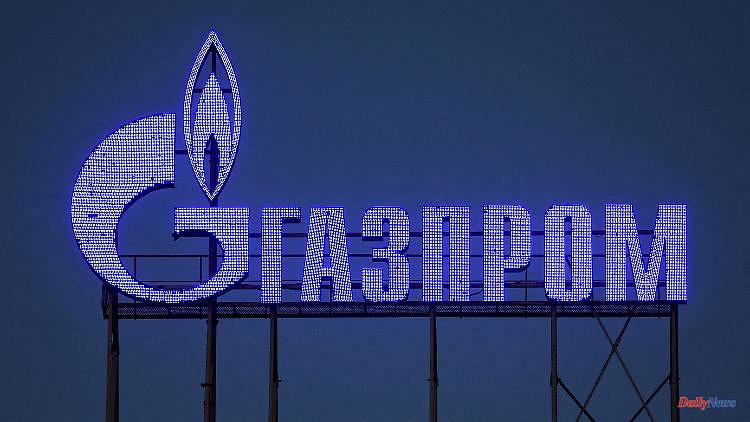It's mysterious: Russian oligarchs and managers from the oil and gas sector are found dead. Official causes of death: suicide, misfortune and poisoning at the shaman. Many of them have ties to the Gazprom concern.
A spate of deaths is sweeping Russia's energy sector - at the heart of gas giant Gazprom. At least five business people associated with the state-controlled group have died in the past few weeks.
The most recent case: Yuri Voronov. The 61-year-old was found dead in the pool at his mansion in a St. Petersburg suburb, with a gunshot wound to the head. A handgun was found nearby, they said. Several used casings would have been lying on the bottom of the pool. The multimillionaire owned a logistics company that had lucrative deals with Gazprom in the Arctic.
The Russian investigators attribute Voronov's death to a "quarrel with business partners," as the Daily Mail reports. His wife reportedly told them her husband believed he had been cheated out of "a lot of money" by "dishonest" business partners.
"This is crazy. People connected to Gazprom are dying like flies," tweeted Bill Browder. For a time, the Briton, with his company Hermitage Capital, was the largest foreign investor in Russia and is now a self-confessed opponent of the Kremlin. His lawyer Sergei Magnitsky, who uncovered suspected fraud by officials, died in 2009 after being mistreated in Russian custody.
The deaths of Russian businessmen have increased recently. In January, former Gazprom manager Leonid Schulman was found dead in the bathroom of his home in the same St. Petersburg suburb where Voronov lived. In February, Alexander Tyulyakov, deputy director general of Gazprom, was found hanged in his villa in the same area. Farewell letters were discovered on both of them.
Shortly thereafter, Ukrainian-born Mikhail Watford was found hanged in the garage of his mansion in Surrey, UK. He too was an oil and gas magnate. In March, Vasily Melnikov died with his wife and two children near Nizhny Novgorod. According to investigators, he first killed his relatives and then himself. He was not active in the energy business, he owned the medical group Medstom.
In April, the former deputy head of Gazprom Bank Valdislav Avayev and Sergei Protosenya, the former manager of Novatek, Russia's largest private gas producer, died. Both are said to have killed their wife and children first and then themselves. Avayev's body and those of his wife and daughter were found in the family's Moscow home on April 18. Protosenja is said to have hanged himself in his villa in Spain just two days later, after he is also said to have killed his wife and daughter.
In May, Andrei Krukowski had an accident. He was the manager of the Russian ski resort Krasnaya Polyana, operated by Gazprom. According to investigators, the 37-year-old fell to his death while hiking off a cliff.
After that, Alexander Subbotin died. According to Russian media reports, he died in a bizarre way. After drinking too much alcohol, the oil manager went to a shaman couple for a "hangover treatment", it is said. In her apartment north of Moscow, the shamans cut his skin and dripped toad poison into the wounds, among other things. When the billionaire was not feeling well, the couple put him to rest in the basement of the house and found him dead a little later.
The frequency of incidents led to rumors that they were actually murders staged as accidents or suicide. The deaths are no coincidence, says Russian banker German Gorbuntsow, who now lives in London and survived an assassination attempt there in 2012 - allegedly carried out by a Moscow crime syndicate. Gorbuntsov was interviewed for the documentary film "Secrets of the Oligarch Wives", produced by the US media group CBS and quoted by the newspaper "Newsweek". In the film, however, Gorbuntsov does not say why the businessmen should have been murdered.
Bill Browder offers a possible explanation in the film: The sanctions imposed after the Russian war of aggression in Ukraine may have played a role. "It looks like the cake has gotten smaller," said the investor. "Now there's a bunch of people arguing about the reduced amount of money. And whenever there are limited resources and very powerful people at the same time, people start dying." According to the Polish think tank "Warsaw Institute", another explanation is possible: people with connections to the Kremlin may be trying to cover up any traces that lead to fraud in state-owned companies.












